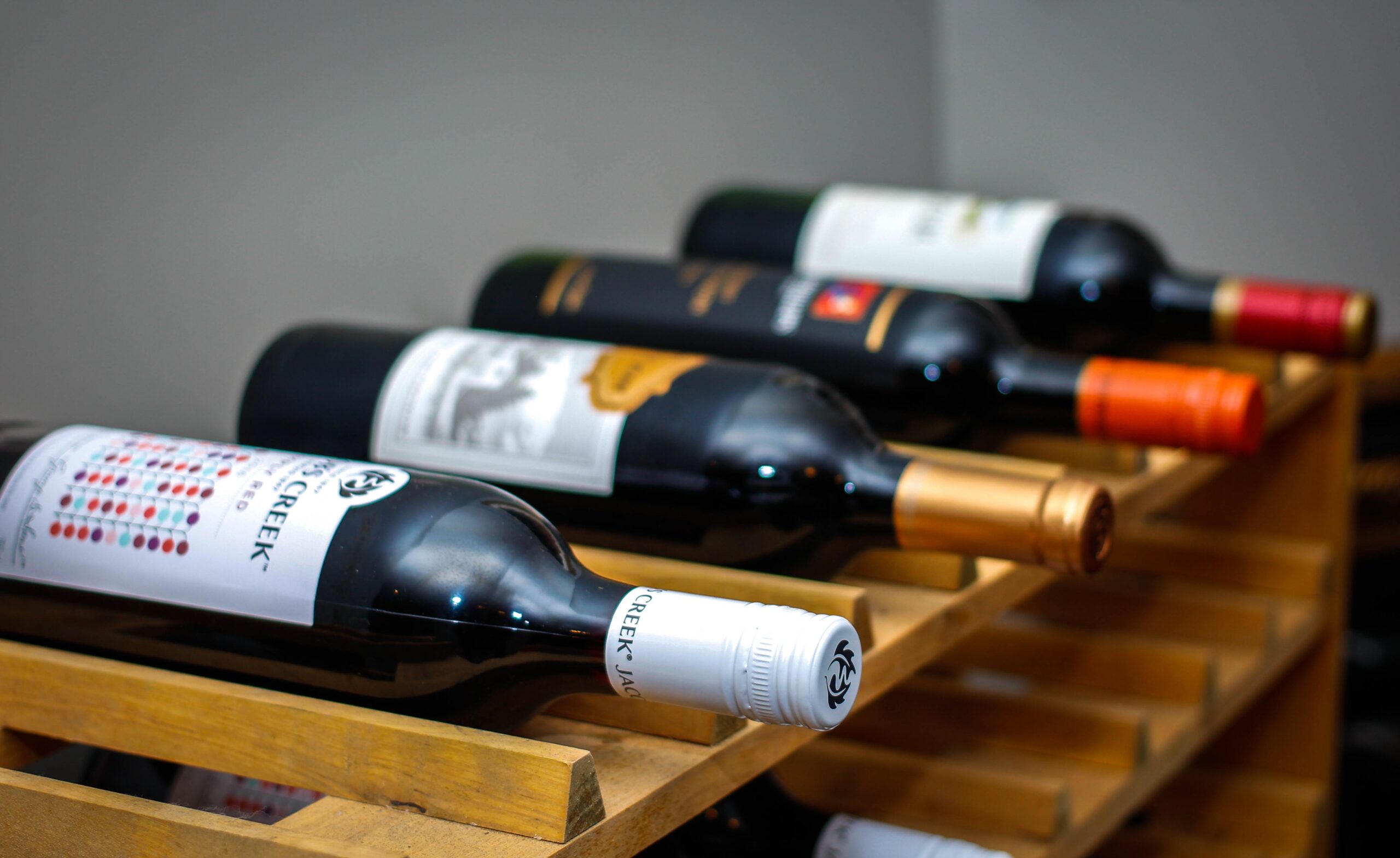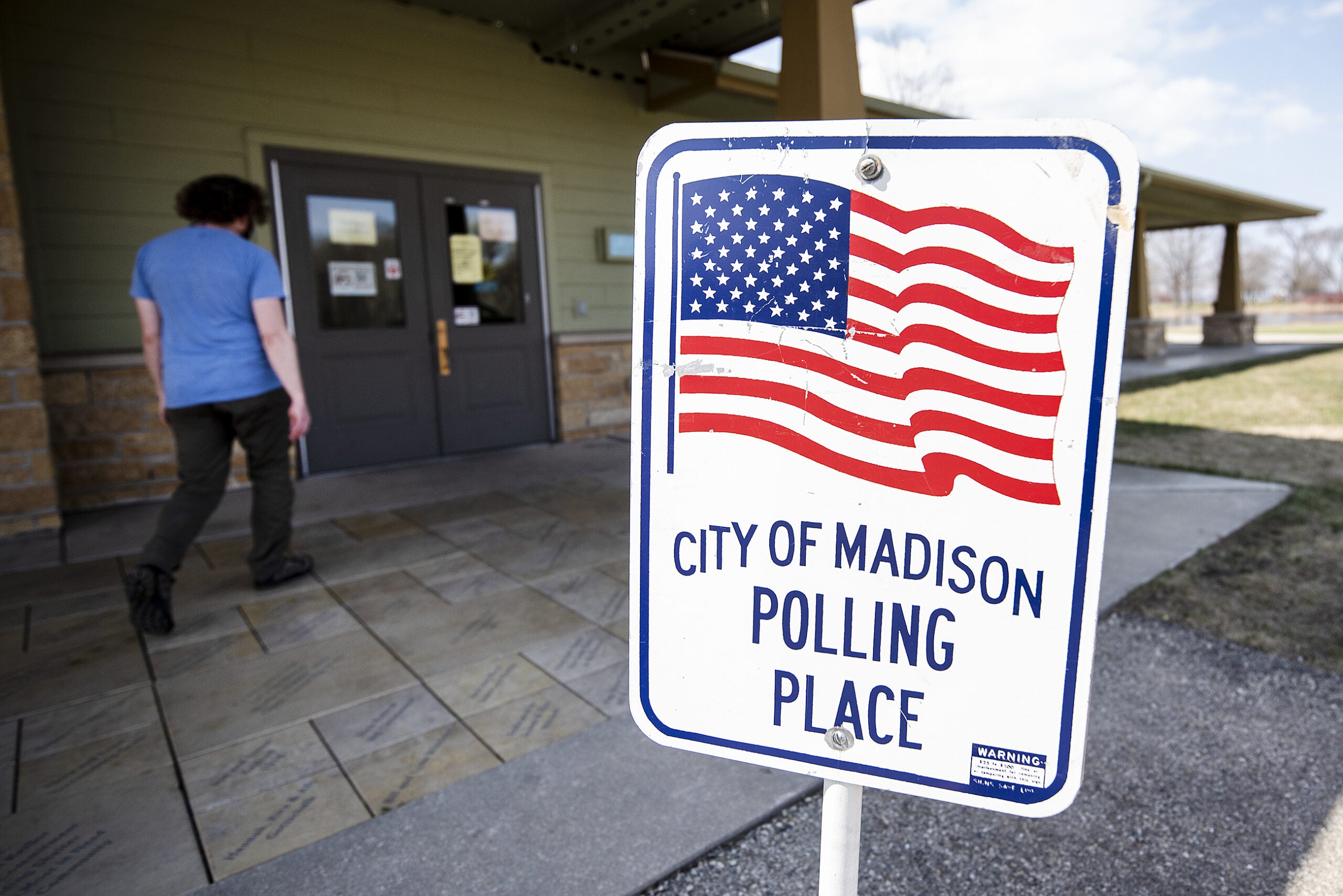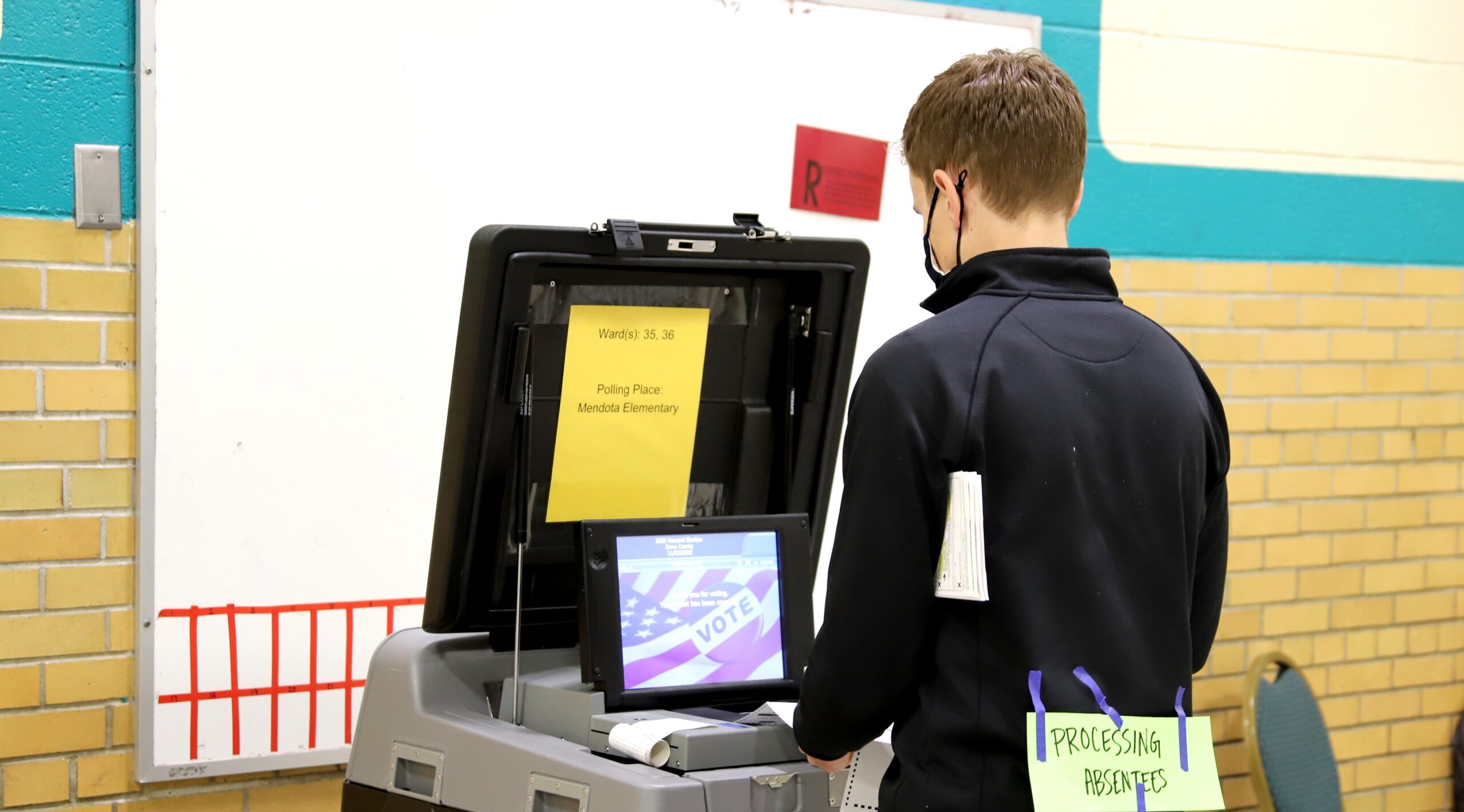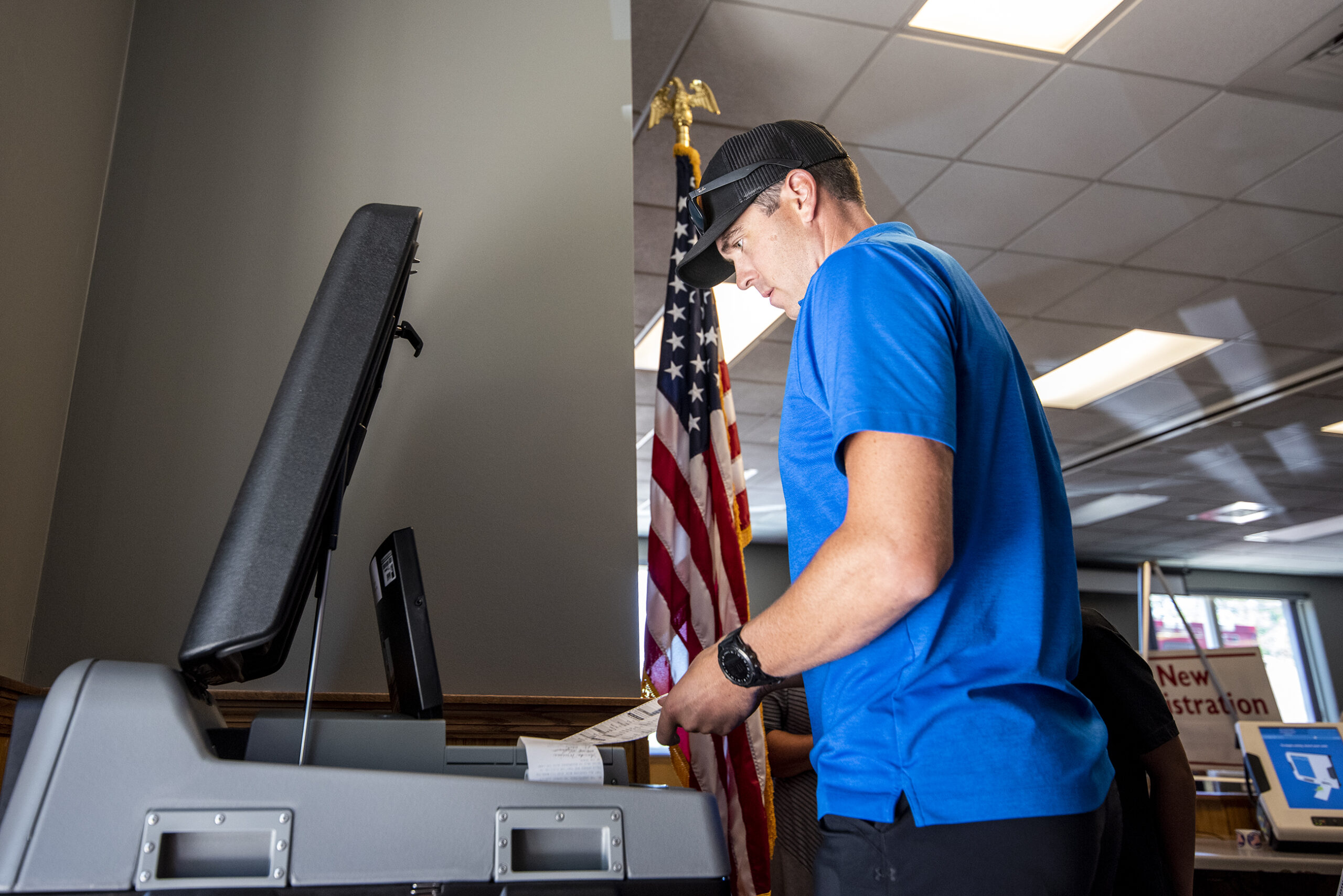Amid the high-stake races for governor and senate, one Wisconsin community is asking voters to decide on an issue closer to home: Should their dry town stay dry?
Voters in a rural Barron County Town of Stanfold will vote on a non-binding referendum Nov. 8, asking whether the community should allow alcohol sales for the first time. The question on the ballot is the result of the small town’s political debate over a local couple’s dream of opening a winery.
Town board chair Charlie Nelson isn’t sure how long Stanfold has been a dry township.
News with a little more humanity
WPR’s “Wisconsin Today” newsletter keeps you connected to the state you love without feeling overwhelmed. No paywall. No agenda. No corporate filter.
“There’s never been any alcohol made and sold out in the township,” said Nelson. “You know, as an individual, you can make your own beer and stuff like that. But as far as being somebody who wants to be in a business and manufacture and distribute and have a tasting area and stuff like that, there’s nothing out there.”
Over the past few years, Sherry Timmerman Goodpaster and her husband have been working to change that. Around 2010, Sherry said they bought an eight-acre parcel and started planting apple trees and grapevines on the property.
The couple also renovated buildings and launched Licks Orchard, Gifts and Music. They’ve since began selling fresh apples, apple butter, jams and non-alcoholic cider. Timmermann Goodpaster said making and selling wines was always part of their plan.
During an annual town meeting in April, Timmerman Goodpaster pitched turning the orchard into a winery with bottles for sale and a tasting room.
Meeting minutes show other residents at the meeting were concerned a winery would change the agricultural nature of the town. One resident suggested raising the cost of a liquor license to $500,000 to stop others from opening a tavern.
After a motion was made to vote on approving a liquor license for Licks Orchard, residents rejected it by a vote of 16-5.
Timmerman Goodpaster said previous town boards in Stanfold had indicated a willingness to allow the winery, but it appeared things had changed.
“So, it just doesn’t seem like they are going to follow through on their previous indications to us,” said Timmermann Goodpaster. “And so we just made other plans. I don’t know what else to do.”
The couple bought another location in the nearby Town of Red Cedar, which already allows alcohol sales, and are planning to make and sell their wine there.
But Stanfold voters could still sway the town board. Nelson, the board chair, said he felt the 16-5 vote against the winery in April wasn’t a proper sample of the town’s 700 or so residents.
So an advisory referendum was drawn up, asking whether Stanfold should “issue alcoholic beverage licenses allowing the sale of alcoholic beverages within the town.”
“If it passes, I think then the people have spoken and we move ahead,” said Nelson. “Now, whether the other two supervisors feel the same way I do… We really haven’t gone into that as far as any more discussion.”
As for how the referendum will fare, Nelson said, “I’ll wait ’till the votes are cast.”
“I’ve thought before that something else is going to go a certain way, and I’m completely wrong,” said Nelson. “So you just don’t know until those votes are there.”
Wisconsin has long been known for its alcohol production and consumption, but there have been some notable exceptions.
The town of Ephraim in Door County was once believed to be one of the last dry communities in the state. That changed in 2016 when residents voted overwhelmingly on a binding referendum to allow the sale of beer and wine.
Soon after, former Gov. Scott Walker signed 2015 Act 372 into law, which lifted the requirement for cities, villages and towns to get voter approval before issuing beer or liquor licenses.
Wisconsin Public Radio, © Copyright 2026, Board of Regents of the University of Wisconsin System and Wisconsin Educational Communications Board.





